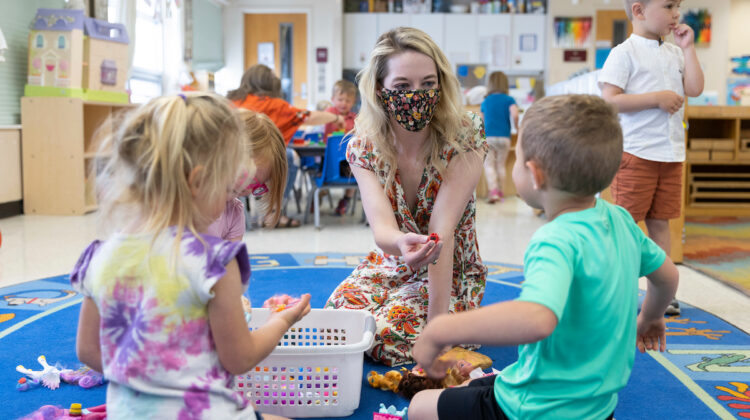When Dr. Kennedy Ongaga, assistant professor in the department of counseling, leadership and special education, found out he won the Spencer Foundation research grant, he ran to his front yard and shouted, “Thank you, God!”
“When we have a crisis, marginalized students and English learners are always left behind,” Ongaga said. “During COVID-19, our homes, our students’ homes, became the schools when schools moved to remote. The question becomes, what resources are available or did schools leverage to support student learning?”
Ongaga’s research seeks to assess the education of English language learners (ELL) in Springfield Public Schools (SPS) during the pandemic.
The data he collects will serve as a foundation for improving and creating support services for ELLs in times of crisis.
Working in social justice
Ongaga’s work in SPS specifically addresses ELLs. Many of them are refugees from around the world including Afghanistan, Congo, Iraq, Malawi and Tanzania.
“I try to acculturate them and help them to understand what life is like in America,” Ongaga said. “I also do interpretation for students who don’t speak English for the K-12 schools within this region.”
The pandemic caused transitions in class delivery, communication and the structure of school. Ongaga’s research questions address how accommodations were made to assist ELLs during this transition and the ongoing pandemic.
Asking the right questions
Ongaga will officially begin this research project in October 2021 and plans to conclude it in September 2023.
The data collection will occur in four phases:
- Surveying students, administrators, EL specialists, teachers and other staff members.
- Interviews with counselors, school nurses, social workers and psychologists.
- Focus groups with parents, teachers and students.
- Secondary data including assessment results and test scores from DESE.
“Using secondary data, in connection with the qualitative data that we’ll get from the participants, we should be able to make evidence-based projections of what is going on,” Ongaga said.
He hopes this data will help answer questions such as:
- What services, strategies and special accommodations did SPS implement to support ELLs learning during the pandemic?
- To what extent do ELLs perceive that their academic needs were actually met during the pandemic?
- What is communication like between the school, teachers and parents to keep the momentum of student learning going?
- What guidance and supports are educators provided with to address EL learning needs?
“For some students, school is where they take their breakfast, their lunch and sometimes that’s where they get that sandwich that they take home for dinner,” Ongaga said. “I want to know what services and programs have been used to mitigate the impact of the pandemic on the ELL’s social-emotional development and their family’s wellbeing.”
Ongaga hopes to make research-based recommendations for SPS and other K-12 districts so they can be more specific in addressing the needs of such sub-groups and marginalized students.
“We have a lot of resources to rehumanize education in times of crises – if only we can know how to leverage those resources to reach students,” Ongaga said.
Spencer Foundation Funding
Ongaga’s research is funded in part by the Spencer Foundation research grant that he won this fall. The Spencer Foundation awards grants nationally and applicants have only a 5% chance of receiving funding.
Ongaga submitted the application himself, but he is grateful for the support he found in his department.
“Dr. Reesha Adamson, who was my answering department head, was absolutely helpful in calming me down,” Ongaga said. “She’s very good with grant writing and shared sort of a toolbox of what I needed to do.”
The pandemic continues to reveal inequities that ELLs and children from immigrant families experience in U.S. schools and their communities.
Support from the Spencer Foundation is an acknowledgment of how important this kind of work is in making a difference in the lives of students.
“I’m very sure, through these small grants, we will be able to make an impact and meaningfully partner with our K-12 school districts in addressing challenges of reaching vulnerable populations,” Ongaga said.
Making a difference
Ongaga’s research connects to the ways Missouri State is working to improve the community through the public affairs mission. Ongaga hopes the work he is doing will inspire others.
He referenced a well-known quote: “You don’t get harmony when everyone sings the same note. Only notes that are different can harmonize. The same is true of people.”
Ongaga encourages people to find their own ways to help the people around them.
“When you look at what’s going on around the world and see what people are going through – they’re not worse than me and you. They’re just human beings caught up in some kind of mess,” Ongaga said. “We have a moral responsibility to be our brother’s keeper, and I’m very sure we can do it.”



